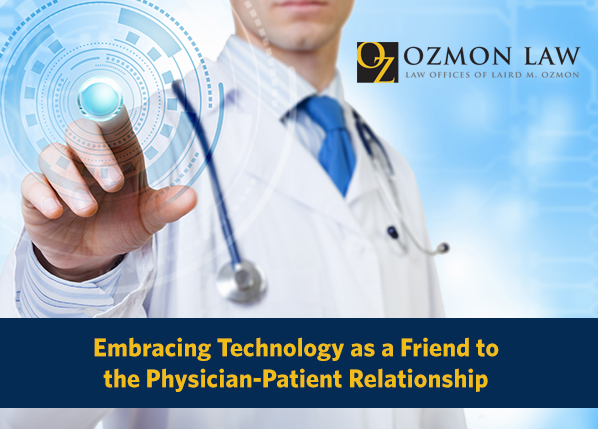
Technological advances are poised to work wonders in improving our health care system, decreasing medical mistakes and optimizing patient outcomes. However, there is a constant tension between marshaling our resources to serve this virtuous end and preserving information that may ultimately be used in medical malpractice litigation. The idea that our health care system could be held hostage by the slaves to mediocrity who refuse to face the fact that we are all fallible human beings is simply outrageous.
Certain software platforms allow patients to have an office visit or follow-up appointments and record their interaction with physicians. Patients are then allowed to access information stored digitally that eliminates the human error endemic to physician-patient encounters that are plagued by stress, confusion and denial. The ability to digitally access and refer to physician advice promotes early intervention and ensures patient compliance. Even better, it is likely to reduce adverse outcomes which ultimately decreases the incidents of medical malpractice and the litigation that arises from it. This reasoning is so logical, so clearly rational, yet it will likely take years before health care professionals will embrace it. Why? Because medical professionals believe anything that might hold them accountable for a mistake is detrimental to them.
Lawyers are often accused of twisting the truth to garner a verdict. However, the real truth is that anyone can make a mistake and the accuracy of what did occur is no better preserved than through digital recording. When health care professionals make mistakes, people suffer and die. The stakes are high to be sure and that is why professional liability insurance is there to enable health care professionals to practice and be human at the same time.
So rather than blame the record, or seek to abolish the record to serve their own self-interest, medical professionals should welcome the documentation and memorialization of their treatment advice and their best efforts on behalf of their patients. In most cases, it means patients are getting the highest standard of care and have the tools to successfully follow care advice and manage their expectations. This access is the key ingredient to a functional, valued and long-standing physician-patient relationship and a health care system with fewer medical mistakes.
And, if I had my way, surgeons would wear body cams. After all, it’s an accepted tool within our police departments, why not our in operating rooms? No more one sided, self serving and sometimes false testimony by a physician-the very reason our police are now required to use them!

